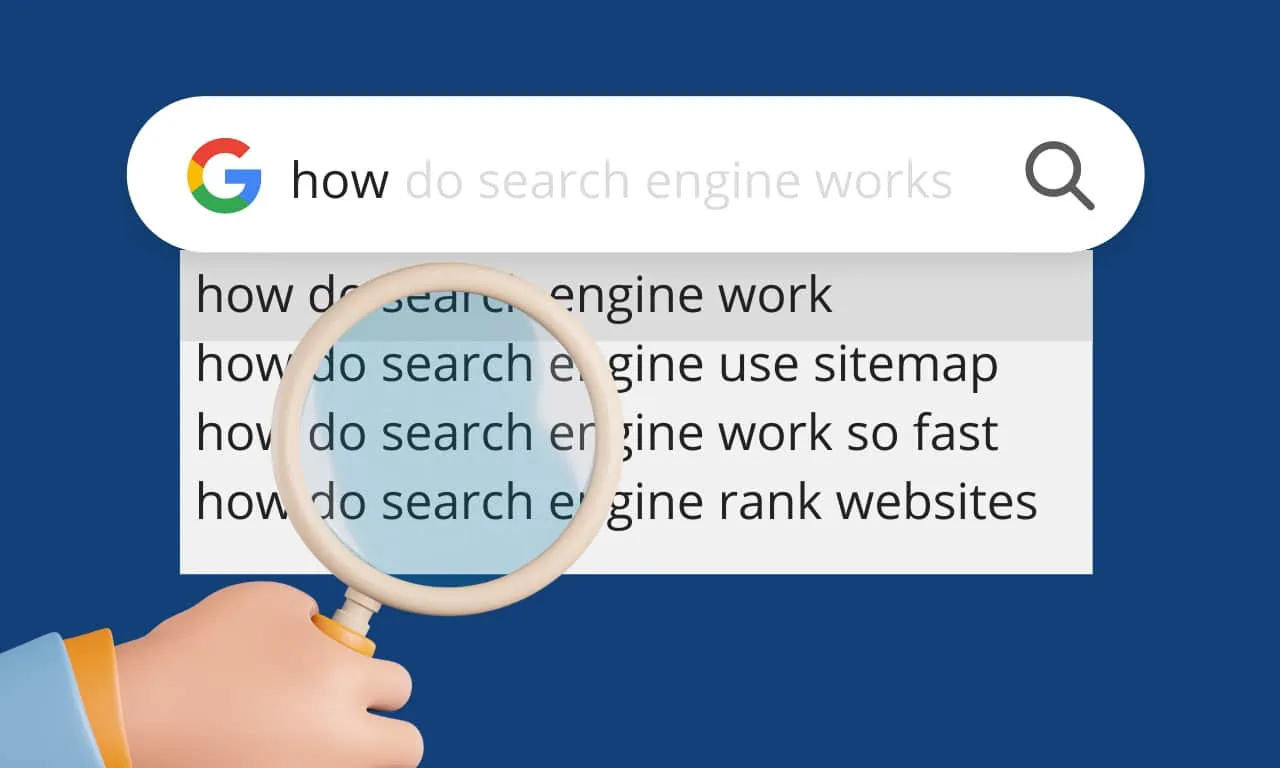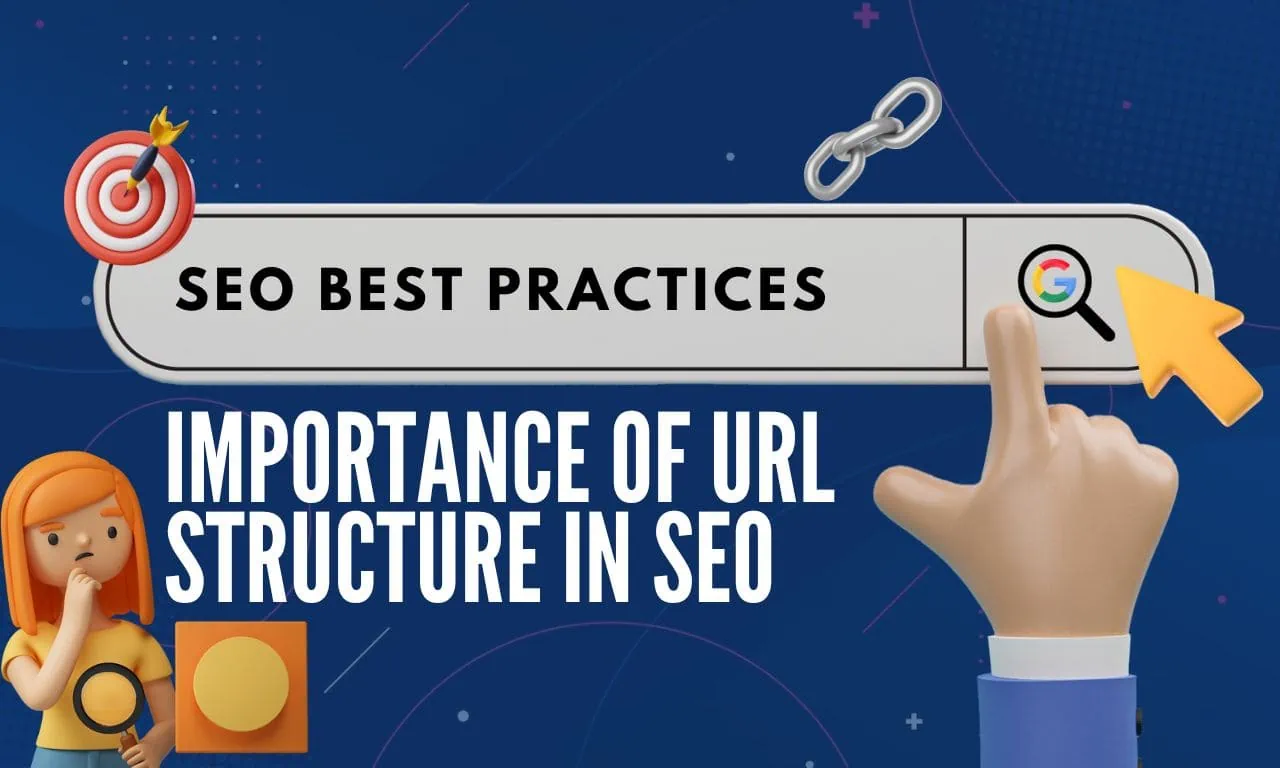Imagine gaining a deep understanding of how search engines work and how that can help your business perform better in the search results.
In essence, SEO refers to search engine optimization. To achieve success, it is crucial to comprehend the inner workings of search engines and their mechanisms.
In this article, we will explore the intricate workings of search engines, with a specific focus on Google. We will share our valuable insights gained through years of experience. By using this valuable knowledge, you as a business owner or marketer can take practical steps to improve your rankings, attract more visitors, and ultimately, increase sales for your businesses.
Key Takeaways
Google holds a staggering 94% market share in Singapore, making it the dominant search engine.
Google's search engine works through a 3 step process: Crawling, Indexing & Ranking
When you search on Google, you are exploring its database of results.
Effective SEO strategies can be implemented at each step of the search engine process to enhance your website's visibility and relevance.
Understanding Search Engines: The Basics for Google
Search engines function as modern-day digital librarians, meticulously organizing and indexing vast amounts of web content. This organization significantly facilitates users in finding the information they seek.
In this article, we will be referring to Google Search, the most popular search engine in Singapore, which holds an impressive 94% market share.
Purpose of search engines
At their core, search engines like Google aim to provide users with the most relevant results to their search queries. It is also embedded in Google's mission statement itself.
Google mission statement is to “organize the world’s information and make it universally accessible and useful.
They sift through billions of pages on the internet and present the most pertinent information in an organized manner. In doing so, search engines serve as a vital bridge between businesses and their target audience, making it easier for companies to share their message and products with the world.
When It is Done Right
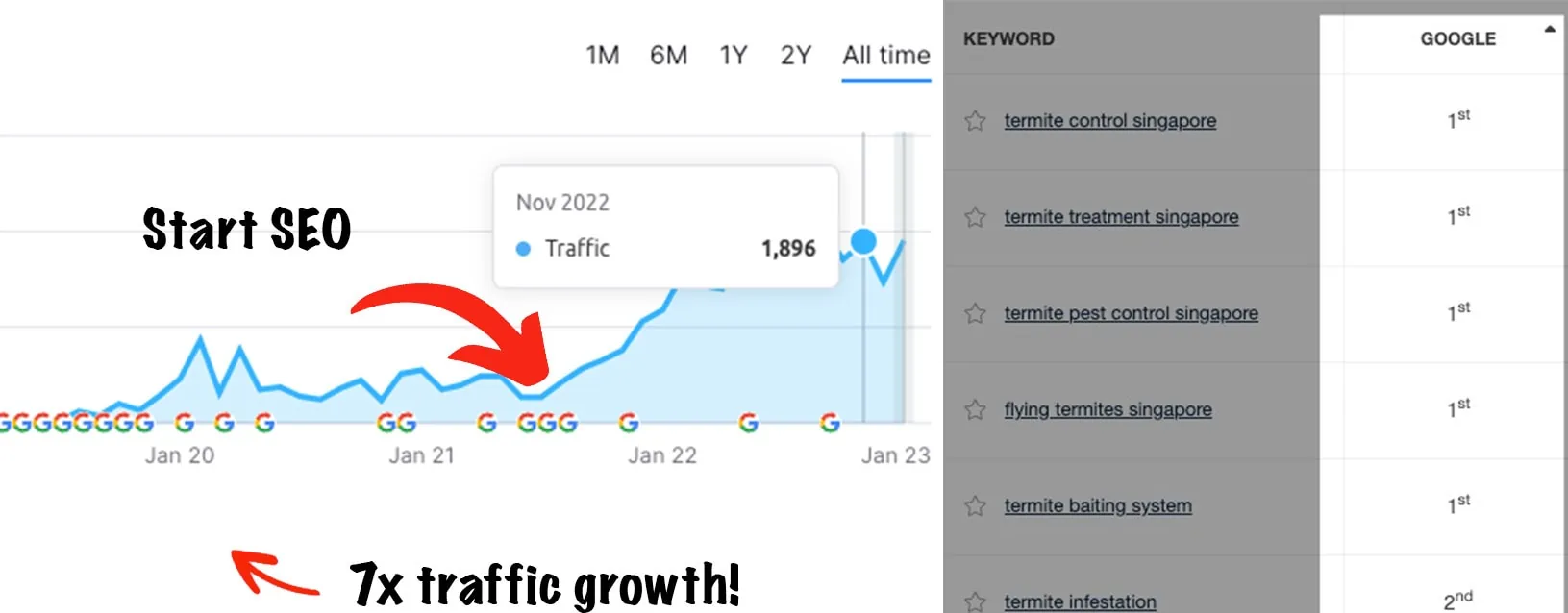
When search engine optimization (SEO) is implemented effectively, it has the potential to yield remarkable results, as demonstrated by one of our clients in the termite industry. By employing proven SEO strategies and techniques that align with how search engines work, we were able to help this client achieve exceptional rankings in search engine results.
How Do Search Engine Works
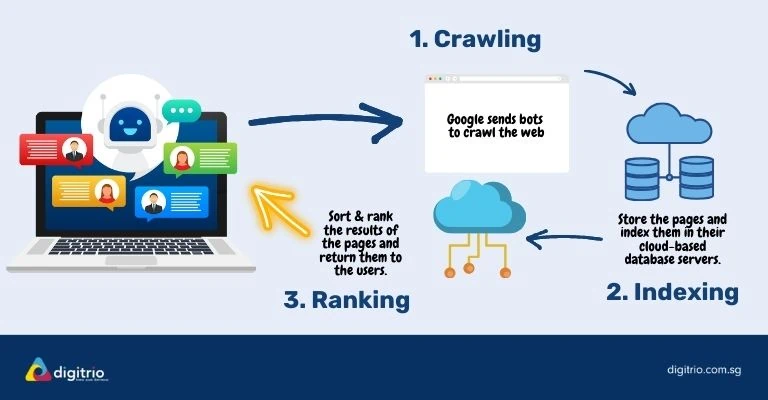
Search engines work by searching their vast database of indexed pages. They retrieve and rank results that are most pertinent to a user's query. This is achieved using a 3 phase approach: crawling, indexing, and ranking.
These components work in harmony to discover, store, and organize web content, ensuring that users are presented with the most relevant search results in response to their queries.
By understanding these components and how they interact, you can gain a deeper insight into the inner workings of search engines and optimize your website accordingly.
1. Crawling

The first step of how search engines work is crawling.
2. Indexing

The second step of how search engines work is indexing.
3. Ranking

The final step of how search engines work is ranking.
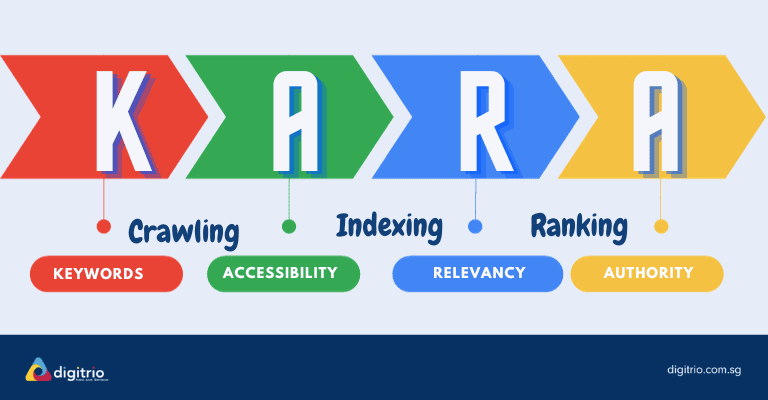
Here at Digitrio, we developed a proven 4-step KARA SEO framework that aligns with these components. This framework targets the right keywords, improves site accessibility, optimize relevant content and builds up authority for content marketing and link building. These resulted in driving both ranking improvements and traffic growth for clients.
How to Optimize Your Website for Crawling in SEO
When you search on Google, you are exploring its database of results. If Google's bot cannot crawl your webpages, you won't be found at all.
Therefore, optimizing your website for crawling is crucial as it serves as the first step towards achieving a high ranking.
Here are key steps to optimize your website for crawling:
Check Robots.txt and Meta Tag
Make sure you are not unintentionally blocking pages from search engines using your robots.txt file or meta tags set to "noindex."
Fix broken links
Broken links can prevent crawlers from accessing your pages. Use a tool like Google Search Console to identify and fix broken links.
Create and Submit an XML Sitemap
This helps search engines understand your site structure and find all important pages. Update the sitemap regularly, especially when adding new pages.
Improve website speed
A fast website helps crawlers to crawl more pages in less time, which can improve your crawl budget.
Use internal linking
Internal linking helps crawlers to discover and crawl more pages on your website. Make sure to link to relevant pages within your website especially to important pages that you want to do well for SEO.
How to Optimize Your Website for Indexing in SEO
When users type a query into Google, the search engine doesn't scour the entire web to find the information. Instead, it searches its extensive database of indexed pages, retrieving and ranking the most relevant results for the user's query. This indexing system enables Google to provide fast, accurate results. However, this also means that if your pages are not included in Google's index, they won't appear in the search results, regardless of their relevance or quality.
Therefore, it's crucial to ensure that your website is not only properly indexed but optimized to rank effectively within this vast indexed database.
Here are key steps to optimize your website for indexing:
Unique Content
If your content is the same as that on other pages of your site or from others on the internet, search engines will not index it, as it does not add any value since it already exists.
Use Structured Data
Implement Schema markup to help search engines understand the context and structure of your content. This not only helps with indexing but can also lead to rich results in SERPs.
Optimize Meta Tags
Make sure each page has a unique title tag and meta description. These tags provide search engines with information about your page content and are essential for indexing.
Eliminate Crawl Errors
Use Google Search Console to identify and fix crawl errors. These errors could be preventing certain pages from being indexed.
Optimize for Mobile
Google uses mobile-first indexing. Ensure that your website is mobile-friendly to help your pages get indexed.
Ensure Site Security
Make sure your site is HTTPS. Secure sites are preferred by search engines and are more likely to be indexed.
How to Optimize Your Website for Ranking in SEO
The final stage in a search engine's process is to rank the results based on the search query, a task performed in mere milliseconds. Google's rise to prominence can be attributed to its complex yet efficient search algorithms, such as PageRank, Panda, and Penguin, among others. These form the backbone of Google's search system, collectively known as Google search algorithms.
These algorithms undergo frequent updates, reflecting Google's commitment to delivering the most relevant search results by efficiently navigating their expansive database. Despite the complexity of these algorithms, their core objective remains straightforward: to evaluate and rank content based on relevancy and authority.
Here are key steps to optimize your website for ranking:
Relevancy
Conduct Keyword Research
Identify the keywords that your target audience is searching for and optimize your website content accordingly.
Dedicated Page for Each Main Keyword
When a page focuses on a single topic, articulated by a main keyword, it provides a clear, concentrated source of information on that subject.
Enhance Content Around Main Keywords
By using the relevant keywords in your content, page titles, meta descriptions and header tag, it helps search engines understand what your website is about.
Authority
Publish More Helpful Content
By providing insightful information, useful tips, and innovative solutions, you demonstrate your knowledge and skills, which builds trust and credibility with your audience. Not only does this provide immediate value to your readers, but it also signals to search engines that your site is a reliable source of information on the topics you cover. The key is to provide added value beyond what is already available on the internet, avoiding the repetition of standard information and content.
Build High-quality Backlinks
When other websites link to your pages, it helps to cast a "vote" for your page and sends a signal to Google about it. High-quality backlinks are links that come from reputable and trustworthy websites. Here at Digitrio, we use two main metrics: a domain rating of >30 and sites that have at least 500 traffic from the SEMRush tool. If a site is receiving traffic from Google, it is a good sign that the website is trusted by Google, thus making it a trusted and high-quality site to have a link from.
Conclusion

Google and other search engines serve to help users find and navigate the large and vast internet, displaying results via search engine results pages.
Understanding the inner workings of search engines, including web crawling and indexing, as well as the intricate ranking factors, is crucial to establishing a strong online presence and engaging your target audience.
Armed with this understanding, you are not merely casting your content into the digital ether, hoping for it to gain traction. Rather, you are strategically aligning your business with the pathways of search engines, forging a connection between your brand and prospective customers.
In the realm of digital marketing, becoming proficient in the mechanics of search engines is not just beneficial—it's instrumental to your success.

